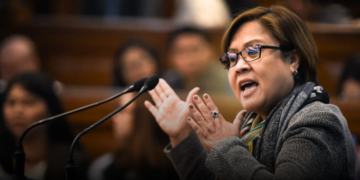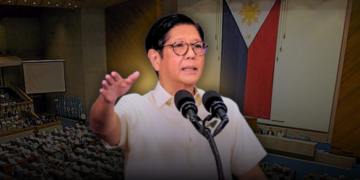Actress Nadine Lustre has taken formal legal action after enduring what her camp calls “relentless and malicious attacks” online. On May 21, she filed a complaint under Republic Act No. 11313, also known as the Safe Spaces Act, marking a rare and high-profile use of the law by a public figure.
The Safe Spaces Act, enacted in 2019, is designed to address gender-based harassment in both physical and digital spaces. Under the law, online harassment that is sexist, misogynistic, or otherwise discriminatory may be penalized, with fines or imprisonment depending on the severity of the violation.
Lustre’s complaint did not name specific individuals or posts, but her legal team emphasized that the goal is not just to seek redress, but also to highlight the broader misuse of digital platforms to spread hate.
In their statement, they described the campaign against her as “a clear attempt to silence and demean voices who choose to stand for something.”
ML Party-List Backs Lustre, Citing Weaponization of Social Media
The ML party-list, led by Representative-elect Leila de Lima, issued a statement expressing full support for Lustre’s move. “This is a necessary step in a time when social media is being used to silence voices that speak for justice and reform,” De Lima said.
She added that the case goes beyond one individual, framing it as part of a wider issue in which meaningful discussions are being derailed by digital aggression. “Ginagamit ang mga plataporma para buwagin ang makabuluhang diskurso at palitan ito ng galit at paninira,” she said.
While the specifics of Lustre’s case remain confidential for now, legal observers say it could test how far the Safe Spaces Act can go in holding online users accountable—particularly in the gray areas of satire, criticism, and trolling on public forums.
A Bigger Conversation on Accountability in the Digital Age
The timing of this complaint taps into a broader cultural moment. Filipinos are among the most active social media users globally, and the country has seen repeated calls to address the toxic side of online discourse—from anonymous attacks on influencers to harassment of journalists and advocates.
The question now is how laws like the Safe Spaces Act can be applied without infringing on legitimate expression, especially when public figures are involved. Advocates argue that drawing the line between criticism and harassment is key to protecting users—while others warn about the potential chilling effect on free speech.
For Nadine Lustre, the next steps will likely unfold both in legal channels and in the court of public opinion. But what’s clear is that this move has opened the door for renewed conversations on what “safe spaces” really mean in the digital age—and who gets to define them.
As the case develops, many will be watching to see whether this becomes a precedent or a cautionary tale for how we navigate accountability, expression, and protection online.












